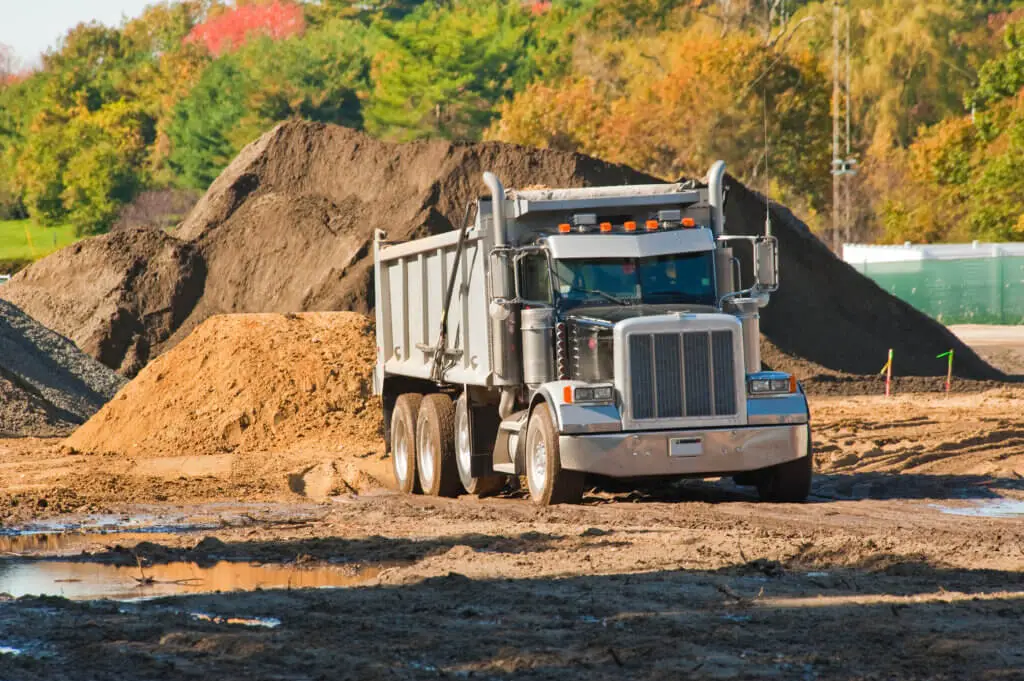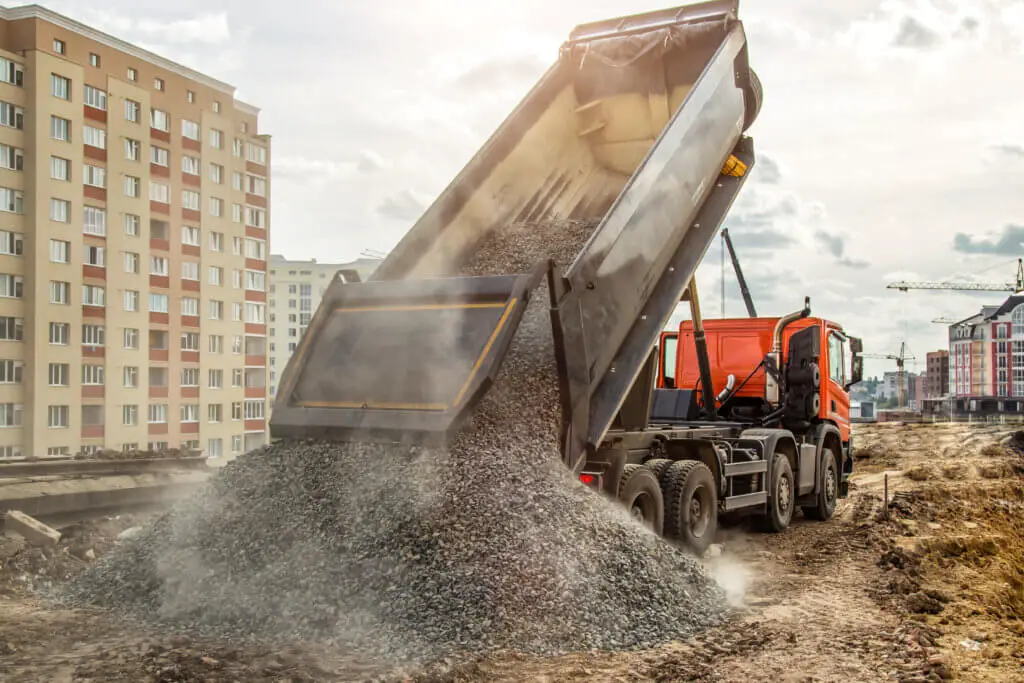Dump trucks are heavy-duty vehicles that are commonly used in construction sites, mining, and other industries that involve transporting large amounts of materials. If you’re interested in pursuing a career in driving a dump truck, you may be wondering if you need a Commercial Driver’s License (CDL) to operate one.
A CDL is a requirement for certain types of vehicles, and understanding whether or not you need one for driving a dump truck is essential before you start your career in this field.
In this article, we’ll take a closer look at whether or not you need a CDL to drive a dump truck, and explore some of the different regulations and requirements you’ll need to meet if you decide to pursue this career path.
Different Types Of Dump Trucks That Require A CDL To Operate

Not all dump trucks require a CDL to operate. The requirement depends on the size and weight of the vehicle. Here are some different types of dump trucks that require a CDL to operate:
1. Class A Dump Trucks
Class A dump trucks are the largest and heaviest dump trucks on the road. These trucks have a gross vehicle weight rating (GVWR) of 80,000 pounds or more, which requires a Class A CDL to operate. Class A dump trucks typically have two axles and can haul up to 30 tons of material. They are commonly used in the construction industry to transport gravel, sand, and other heavy materials to construction sites.
2. Class B Dump Trucks
Class B dump trucks are smaller than Class A dump trucks but still require a CDL to operate. These trucks have a GVWR of 26,001 pounds or more and are used to transport materials over shorter distances. Class B dump trucks usually have a single rear axle and can carry up to 10 tons of material. They are commonly used in landscaping and small construction projects.
3. Transfer Dump Trucks
Transfer dump trucks are a type of Class B dump truck that requires a CDL to operate. These trucks have a trailer that can be detached from the main cab, allowing for more flexibility in loading and unloading materials. Transfer dump trucks can carry up to 20 tons of material and are commonly used in road construction and mining operations.
4. Super 10 Dump Trucks
Super 10 dump trucks are a specialized type of dump truck that requires a CDL to operate. These trucks have ten wheels and can carry up to 10 tons of material. Super 10 dump trucks are commonly used in urban construction projects, where space is limited, and maneuverability is crucial.
5. Bottom Dump Trucks
Bottom dump trucks are another type of dump truck that requires a CDL to operate. These trucks have a trailer that can be raised and lowered to unload the material. Bottom dump trucks can carry up to 25 tons of material and are commonly used in mining and excavation operations.
6. Side Dump Trucks
Side dump trucks are a unique type of dump truck that requires a CDL to operate. These trucks can discharge the material from the side of the vehicle, allowing for easier unloading and more precise placement of materials. Side dump trucks can carry up to 20 tons of material and are commonly used in road construction and land development projects.
CDL Requirements for Driving a Dump Truck
If you are considering driving a dump truck, it is essential to understand the Commercial Driver’s License (CDL) requirements. Here are some important ones:
1. Weight Limits
The weight of the dump truck and the materials it carries will determine the CDL requirements. In most states, if the vehicle and its load weigh more than 26,000 pounds, a CDL is required. However, weight limits vary by state, so you must check with your local Department of Motor Vehicles (DMV) for specific weight requirements.
2. Hauling Materials
Certain types of materials may also require a CDL endorsement. For example, if you are hauling hazardous materials or liquids in quantities over a certain limit, you will need a Hazardous Materials (HAZMAT) endorsement. If you are transporting oversized loads, you may need a specialized endorsement for that as well.
3. Transporting Hazardous Materials
If transporting hazardous materials, you must obtain a HAZMAT endorsement on your CDL. This endorsement requires passing a separate test that covers the safe handling and transport of hazardous materials. Additionally, you will be subject to additional regulations and restrictions when transporting hazardous materials.
4. Driving Across State Lines
If you plan to drive a dump truck across state lines, you must comply with the regulations of each state you pass through. This may include obtaining additional endorsements, permits, or licenses, depending on the state. It is important to research the specific requirements of each state you will be passing through to ensure compliance.
5. Passenger Endorsements
Some dump trucks may require a passenger endorsement on your CDL. This endorsement is necessary if you will be transporting passengers, such as in a crew cab dump truck. The passenger endorsement requires a separate test that covers the safe transport of passengers and may have additional requirements depending on the state.
Exceptions to the CDL Requirement for Dump Trucks

While a CDL is typically required for driving a dump truck, there are some exceptions to this rule that potential drivers should be aware of:
1. Farming Operations
One exception to the CDL requirement for dump trucks involves farming operations. According to the Federal Motor Carrier Safety Administration (FMCSA), drivers who operate a dump truck within 150 air miles of the farm or ranch where they are employed and who transport agricultural products or farm supplies for agricultural purposes do not need a CDL.
This exemption also applies to drivers who are transporting equipment that is used for agricultural purposes.
2. Private Roads
Another exception to the CDL requirement for dump trucks involves private roads. Drivers who operate a dump truck exclusively on private roads are generally not required to have a CDL. Private roads are defined as roads not open to the public and are solely used for transporting goods or people within the property of the owner or lessee of the road.
3. Personal Use
The final exception to the CDL requirement for dump trucks involves personal use. If you own a dump truck and only use it for personal purposes, such as hauling materials for a home improvement project, you may not need a CDL.
However, it is essential to note that the definition of “personal use” can vary by state, so it is important to check with your state’s Department of Motor Vehicles to determine whether or not you need a CDL for your particular situation.
Benefits of Obtaining a CDL for Dump Truck Drivers
Driving a dump truck can be a rewarding career choice, and obtaining a Commercial Driver’s License (CDL) can bring many benefits to dump truck drivers, here are some:
1. Increased Job Opportunities
One of the biggest benefits of obtaining a CDL for dump truck drivers is the increase in job opportunities. Many employers require a CDL for dump truck driving positions, and having one can make you a more competitive candidate for these jobs.
With a CDL, you can also apply for jobs that require driving larger commercial vehicles, such as tractor-trailers, which can lead to even more job opportunities.
Having a CDL can also open up opportunities for specialized driving positions, such as driving hazardous materials or driving oversized loads. These positions often pay higher wages and can offer more job security.
2. Higher Pay
Another significant benefit of obtaining a CDL for dump truck drivers is the potential for higher pay. CDL holders are typically paid more than non-CDL holders, and having a CDL can make you eligible for higher-paying positions. In addition, some companies offer bonuses or incentives for CDL holders, such as signing bonuses or pay increases after a certain amount of time.
3. Professional Development
Obtaining a CDL can also lead to professional development for dump truck drivers. CDL training programs teach drivers valuable skills, such as vehicle maintenance, safety procedures, and defensive driving techniques. These skills can make you a safer and more knowledgeable driver, which can lead to more job opportunities and better pay.
In addition, having a CDL shows that you are committed to your career as a dump truck driver and are willing to invest in your professional development. This can make you stand out to potential employers and help you build a strong reputation in the industry.
Consequences Of Driving A Dump Truck Without A CDL
Driving a dump truck without a Commercial Driver’s License (CDL) can have serious consequences.
Firstly, it is important to understand that a CDL is required to operate a commercial vehicle with a GVWR of 26,001 pounds or more. This means that if you are caught driving a dump truck that exceeds this weight limit without a CDL, you could face fines, license suspension, and even criminal charges.
The penalties for driving a dump truck without a CDL vary depending on the state in which the offense was committed. In most states, a first-time offense can result in fines ranging from $250 to $5,000, as well as potential jail time. Additionally, your driver’s license may be suspended, and you may be required to attend court-ordered classes or training.
Subsequent offenses typically result in higher fines and longer license suspensions, and may even result in the permanent revocation of your driver’s license. In some cases, the company that owns the dump truck may also face fines and other penalties for allowing an unlicensed driver to operate their vehicle.
In addition to the legal consequences of driving a dump truck without a CDL, there are also serious safety risks to consider. Operating a dump truck requires a significant amount of skill and training, and driving one without the proper licensing can put both the driver and other motorists at risk.
Furthermore, operating a dump truck without a CDL can have long-term consequences for your career. Even if you are not caught by law enforcement, driving without a CDL can make it difficult to find employment in the future. Most employers require drivers to have a CDL and may conduct background checks to ensure that their employees have the proper licensing.
Wrapping Up
Whether or not you need a Commercial Driver’s License (CDL) to drive a dump truck depends on the weight of the vehicle and the materials it carries. If the truck weighs more than 26,000 pounds and is used to transport hazardous materials or more than 15 passengers, then a CDL is required.
However, if the dump truck is used for non-commercial purposes and weighs less than 26,000 pounds, then a regular driver’s license is sufficient.
It’s important to follow local and federal regulations to ensure safe driving and avoid any legal consequences.
